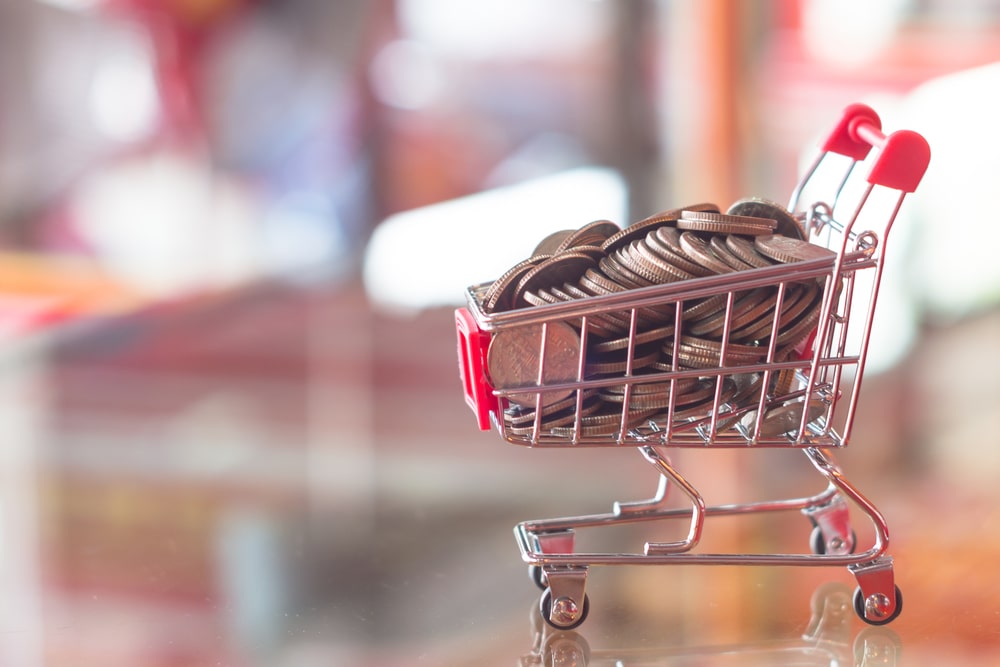Jasmine Birtles
Your money-making expert. Financial journalist, TV and radio personality.


5 spending trends to expect in 2023.
We don’t need to remind you what is going on in the UK right now. The news is a constant slew of jargon surrounding the economy, inflation, interest rates and the cost of living. If anything, the festive period gave us the chance to bury our head in the sand, just for a few days, and forget the doom and gloom surrounding us.
Every part of our lives was impacted in 2022, and not to be the bearers of more bad news, but trends such as high fuel costs, food prices and impacted mortgage rates are expected to continue into the New Year. The ripple effect of the pandemic, alongside the war in Ukraine and murmurs of a recession have combined to leave us in a state of poly-crises.
According to recent data, 7.8 million people across the UK are finding it difficult to keep up with their bills – a staggering increase from 2.5 million in 2020. Additionally, one in four UK adults are in financial difficulty, or believe they could quickly land in dire financial straits should they suffer an unexpected financial shock. Further to this, the DWP has stated that four million children now live in households on universal credit – a leap of 500,000 compared to this time last year.
Although we have to navigate the worst of times before things improve, the way people are spending is changing, which in some cases may positively impact the economy and individuals themselves.
Here are five spending trends to watch out for in 2023.
Disposable incomes are falling, meaning people are looking for alternative ways to shop. This includes buying second hand, with many people turning to charity shops to buy goods such as clothes and furniture.
Buying second hand and upcycling clothing has surged in popularity in recent years, with the detrimental environmental impacts of fast fashion coming into people’s awareness. The cost-of-living crisis has only urged more people to do so, not only because money is tight, but the idea of recycling and reusing goods in working condition and reducing their spend on fast fashion is a higher priority for many more shoppers.
Of course, an advantage of more people shopping at charity shops means more money going to important social causes, however independent charity shops can add flare and uniqueness to the high street, particularly in a world where the food and clothing giants monopolise our towns and cities.
Despite uncertain economic times, many people do launch new businesses, despite what you may expect. Increasingly, people are wanting to give up the usual 9 to 5 and do something they love, on their own terms.
The sentiment of supporting small businesses in difficult times is higher than ever, with many Britons expected to start their own businesses – many of them from the comfort of their own homes.
The UK is no stranger to alternative energy sources, with solar panels and heat pumps gaining popularity year on year. This year, customers are expected to bite the bullet. They will invest their money into renewable and more efficient energy sources for their homes and businesses.
The large upfront cost is challenging for many. Despite this, the energy crisis is likely to make more consumers weigh up the costs and rewards. They may look at how much money they could save down the line. As mentioned, it is a financial investment. However, it is one many people are likely to see the long-term benefits of for many years to come.
As with buying second hand, reducing carbon footprint is a hot topic on the mind of many. People will finally take the plunge and use alternative energy sources.
It is expected that more people will have a go at growing their own fruit, vegetables and herbs this year. This is to save on food costs. Whether it is on windowsills, balconies or in a greenhouse, people will ditch supermarket produce and grow their own to save the pennies.
Vehicle-to-grid (V2G) reverse charging is expected to increase this year, making it easier for electric vehicle (EV) owners to charge their vehicles. As the availability of such charging increases, more consumers will shift to buying EVs as technology and convenience improve. Plus, the reduced carbon footprint of EVs, will, once again, be a deciding factor for many.
V2G reverse charging means EV owners can make considerable savings. This is due to lower costs than running a fuel-powered car. It also enables them to power both their home and even sell excess energy back to the National Grid.
Do you think your spending trends will change this year? Let us know in the comments!
